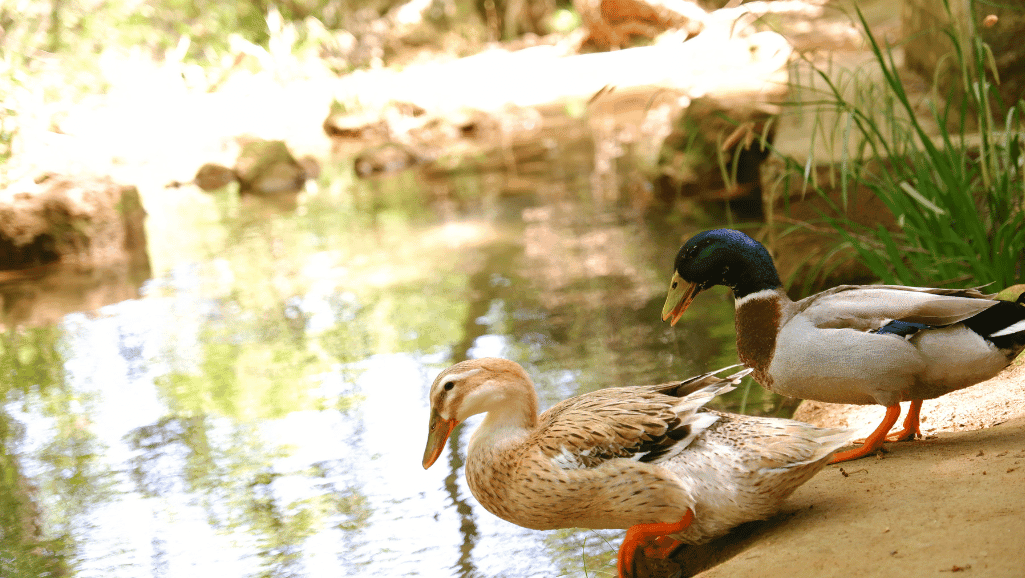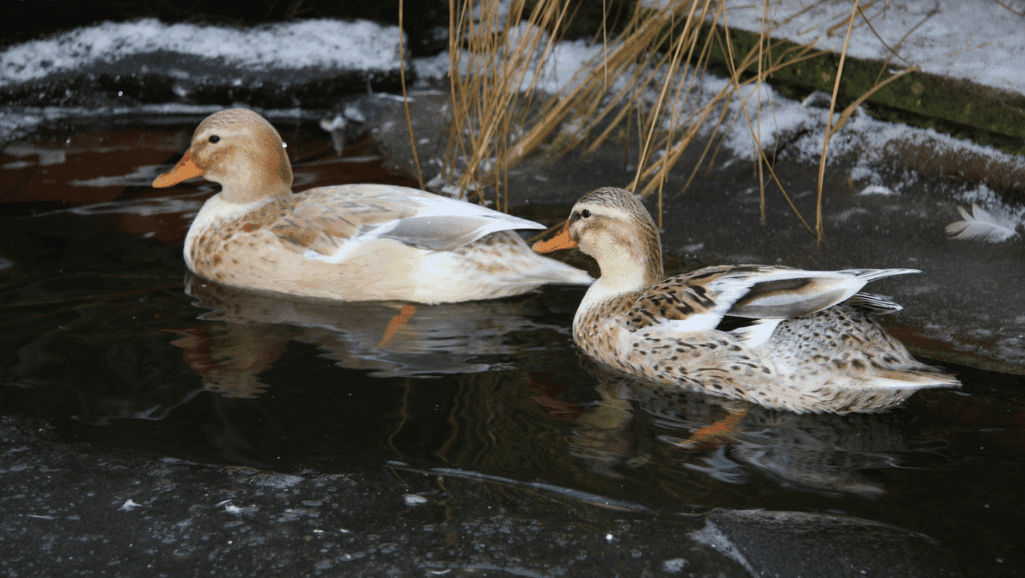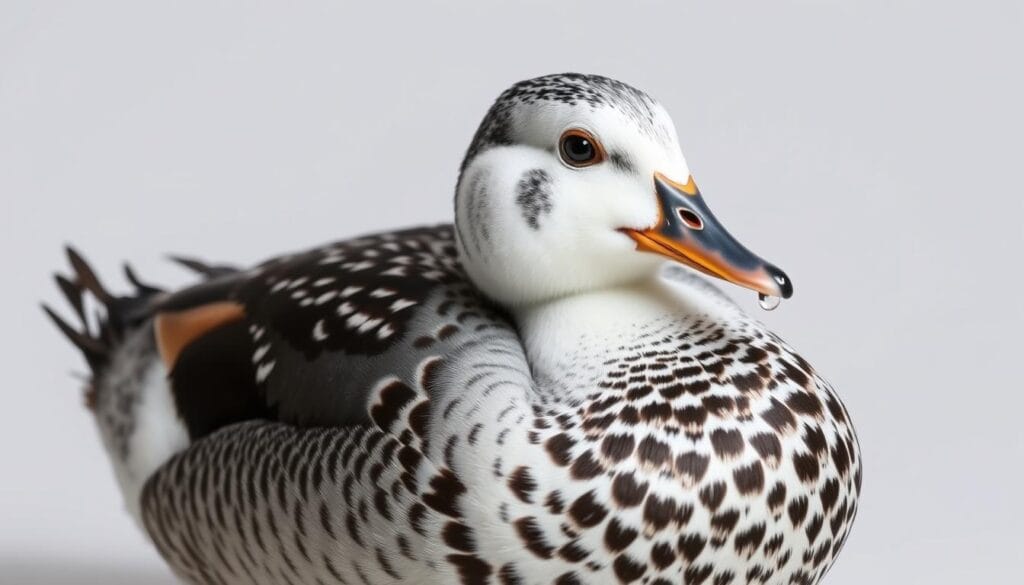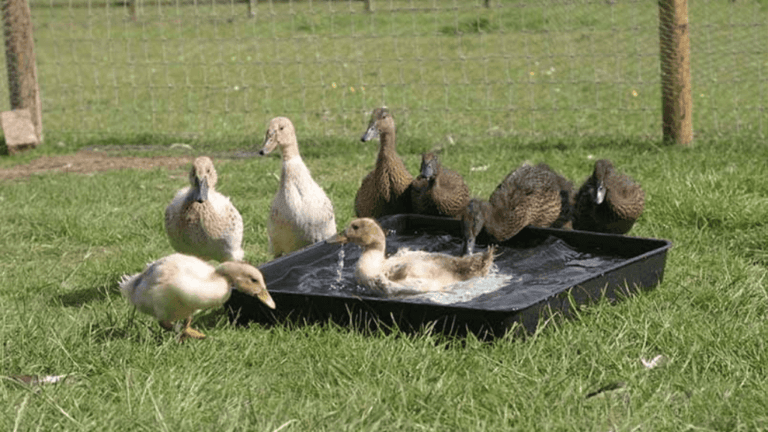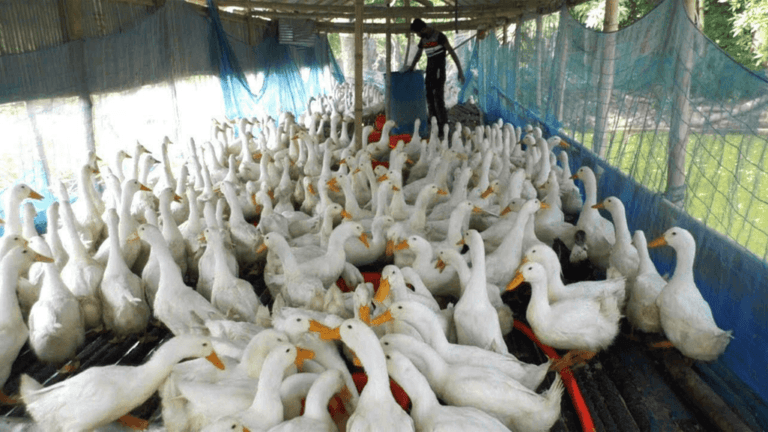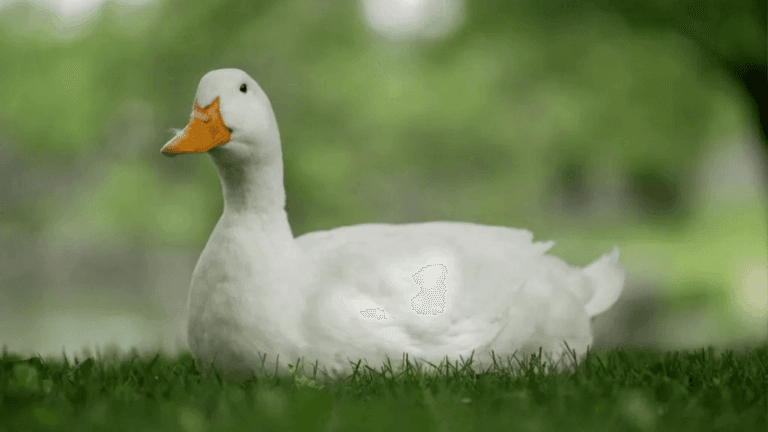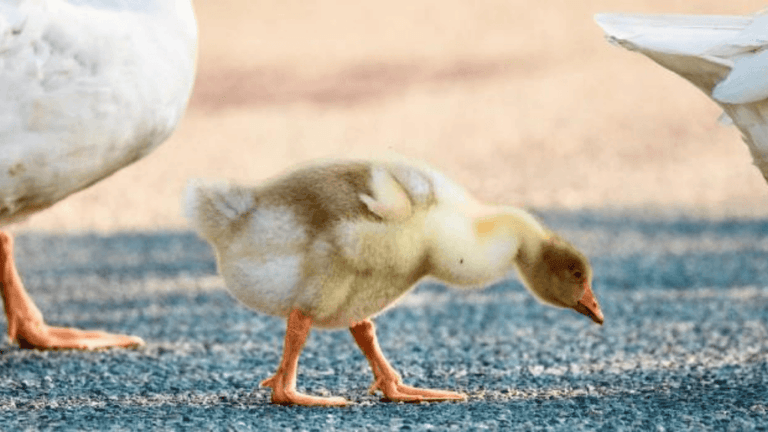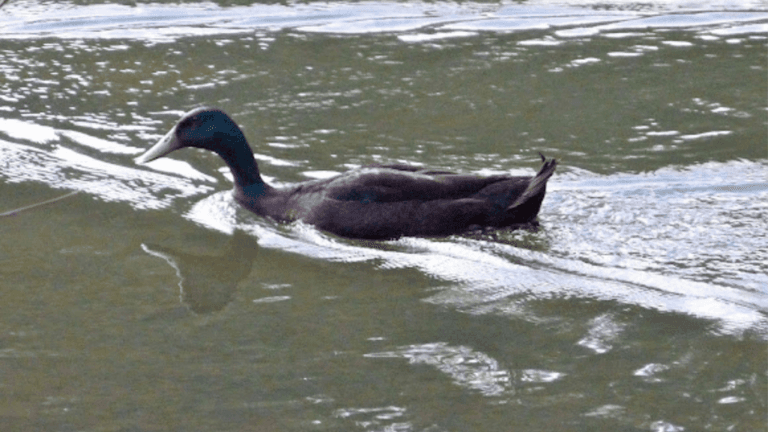The Silver Appleyard Miniature is a breed that has grabbed the attention of rare poultry breeds fans. It was created in the 1980s and combines beauty with usefulness for those who love backyard farming and ornamental chickens.
This duck is much smaller than its big cousins, weighing only one-third as much. It’s known for its beautiful looks and for laying lots of eggs. It’s a standout for its size and how well it does its job.
Unlike some decorative chickens, the Silver Appleyard Miniature is useful for more than just looking good. It lays eggs, making it a top choice for those who want both beauty and usefulness in their poultry.
Key Takeaways
- Developed in 1980 as a miniature version of the Silver Appleyard
- Classified as a bantam duck, but technically a miniature breed
- Excellent egg-layer among bantam duck breeds
- Drakes weigh around 3 lb, ducks about 2.5 lb
- Hardy, good fliers, and excellent mothers
- Not yet imported to the United States
- Recognized in the UK in 1997
Introduction to the Silver Appleyard Miniature
The Silver Appleyard Miniature duck is a delightful choice for Backyard Farming and Urban Agriculture. It’s small yet beautiful and useful, perfect for those living sustainably.
Origin and Development
In 1980, Tom Bartlett created the Silver Appleyard Miniature from the larger Silver Appleyard breed. He first showed them at the BWA Championship Waterfowl Exhibition in 1987. The breed became officially recognized in the UK in 1997, a big step in its history. For more about its beginnings, Duck’s New World provides great information.
Breed Classification
Though called a bantam duck, the Silver Appleyard Miniature is technically a miniature. It’s much smaller than its larger relative, ideal for small-scale Backyard Farming. Drakes weigh about 3 pounds, and ducks weigh around 2.5 pounds.
Physical Characteristics
This breed has a compact body and eye-catching plumage. Drakes have a dark head with a green sheen and a white neck ring. Ducks have a whitish head with fawn markings. Both show off blue-tipped wings, adding to their beauty. Their unique look comes from genetic light-phase restricted mallard coloration.
| Characteristic | Drake | Duck |
|---|---|---|
| Head Color | Dark with green sheen | Whitish |
| Neck | White ring | Fawn markings |
| Wing Tips | Blue | Blue |
| Weight | 3 lbs | 2.5 lbs |
These ducks are more than just pretty. They lay 60-160 large white eggs a year. Their size and egg-laying make them a hit with Urban Agriculture fans. They help balance beauty with practicality in Sustainable Living.
History and Heritage of the Silver Appleyard Miniature
The Silver Appleyard Miniature is a small duck breed with a deep history in British waterfowl breeding. It’s loved by hobby farms and backyard keepers for its size. Its small size is perfect for those with little space or smaller chicken coops.
Tom Bartlett’s Breeding Program
In 1980, Tom Bartlett, a famous waterfowl breeder, created the Silver Appleyard Miniature. He aimed to make a smaller version of the Silver Appleyard duck, which Reginald Appleyard had started in the 1930s. Bartlett kept the breed’s looks and productivity but made it smaller.
Comparison to Original Silver Appleyard
The mini version is much smaller than the original. While the big ducks weigh 7 to 8 lbs for females and 8 to 10 lbs for males, the mini ducks are much lighter. Yet, they lay just as many eggs as the big ones, about 220 to 265 per year.
Conservation Status
The original Silver Appleyard is listed as Threatened by the Livestock Conservancy. But the mini version is gaining fans among breeders and show people. In 1997, a standard for the mini Silver Appleyard was set, and it was renamed “Silver Bantam” in the UK. These steps have helped keep the breed alive on hobby farms.
The mini ducks came to the U.S. in the 1960s. The American Poultry Association added it to their Standard of Perfection in 1998. This move has made it a favorite among poultry lovers and backyard duck keepers.
Distinctive Features and Appearance
Silver Appleyard Miniatures are truly beautiful Rare Poultry Breeds. They have a strict breeding standard, making them stand out Ornamental Chickens. Their small size and unique color patterns make them special in the world of waterfowl.
Drakes show off a wide range of colors. Their heads are black-green with a silver-white pattern on the throat. They have a silver ring around their necks, which looks great with their claret to silver underbodies. Their rump is solid black-green, and their wings have elegant blue tips.
Female ducks are just as striking. They have silver-white heads and necks, with creamy white underbodies. Like the males, they have blue-tipped wings. This color mix looks great and is perfect for those looking for Ornamental Chickens.
Both male and female Silver Appleyard Miniatures have compact bodies. This not only makes them look good but also suits them for smaller farms. Their unique colors and body shape really set them apart among Rare Poultry Breeds.
Behavior and Temperament of Silver Appleyard Miniature
The Silver Appleyard Miniature breed has a unique personality. It’s perfect for backyard farming. They are lively and hardy, fitting well in many environments. They are friendly yet independent, great for sustainable living.
Foraging Habits
Silver Appleyard Miniatures love to forage, helping with urban agriculture. They hunt for slugs and snails in gardens, keeping pests away naturally. They need about 1.5 square meters of space per duck to forage well.
Also, they need a water container for washing. It should be deep enough for a full body wash but have a shallow edge for easy getting in and out.
Egg-Laying Capabilities
These ducks are small but lay a lot of eggs. They give about 160 white eggs each year. This makes them great for backyard farmers who want fresh eggs often.
It’s important to collect eggs regularly. This keeps them laying eggs and helps them keep producing.
Suitability for Backyard Farming
Their small size is ideal for city farms. Drakes weigh about 1.4 kg, and ducks 1.1 kg. They need about 0.5 square meters per duck for sleeping.
They are great at sitting and raising families. This makes them perfect for sustainable living. They are adaptable and easy to manage, great for beginners or those with little space.


